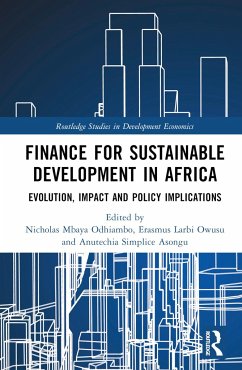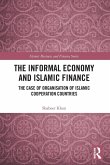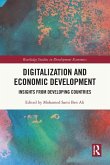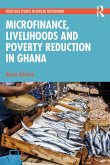Although a number of selected African countries have made efforts to implement various financial sector reforms, many countries have not fully implemented the requisite reforms required for sustainable development. Instead, they have focused mainly on bank-based financial reforms, thereby neglecting market-based financial reforms. This study provides a one-stop shop for understanding the history and evolution of the financial sector in Africa with a special focus on the sub-Saharan region where the financial system in many countries is still at a relatively nascent stage. The analysis is extensive and robust, and starts from financial repression to financial liberalisation (both internal and external), and its role in sustainable development and poverty alleviation.
The book covers a range of important research issues pertaining to financial development in selectede African countries, including interest rate and exchange rate reforms, the dynamics of bank-based and market-based financial development; the role of the informal financial sector in sustainable development; the finance-growth nexus; bank-based versus market-based financial sectors in Africa; financial development and information and communication technology; and financial development and gender equality, among other topics. The book also considers the relationship between the COVID-19 global pandemic and financial development, and concludes by presenting a forecast of the future trends of financial and sustainable development on the African continent in general and sub-Saharfan Africa in particular. The chapters are authored by prominent scholars and researchers in the field of finance and banking, applied econometrics and development economics, with a deep understanding and knowledge of financial development and the local situations in African countries.
This book provides crucial reference material for academics, researchers, policymakers and students of all levels and is a must-read for anyone wishing to understand the nature of finance and sustainable development in Africa in relation to the rest of the world. It covers African countries, but with more emphasis on the sub-Saharan African region where the financial systems in many of the countries are still relatively underdeveloped.
The book covers a range of important research issues pertaining to financial development in selectede African countries, including interest rate and exchange rate reforms, the dynamics of bank-based and market-based financial development; the role of the informal financial sector in sustainable development; the finance-growth nexus; bank-based versus market-based financial sectors in Africa; financial development and information and communication technology; and financial development and gender equality, among other topics. The book also considers the relationship between the COVID-19 global pandemic and financial development, and concludes by presenting a forecast of the future trends of financial and sustainable development on the African continent in general and sub-Saharfan Africa in particular. The chapters are authored by prominent scholars and researchers in the field of finance and banking, applied econometrics and development economics, with a deep understanding and knowledge of financial development and the local situations in African countries.
This book provides crucial reference material for academics, researchers, policymakers and students of all levels and is a must-read for anyone wishing to understand the nature of finance and sustainable development in Africa in relation to the rest of the world. It covers African countries, but with more emphasis on the sub-Saharan African region where the financial systems in many of the countries are still relatively underdeveloped.








